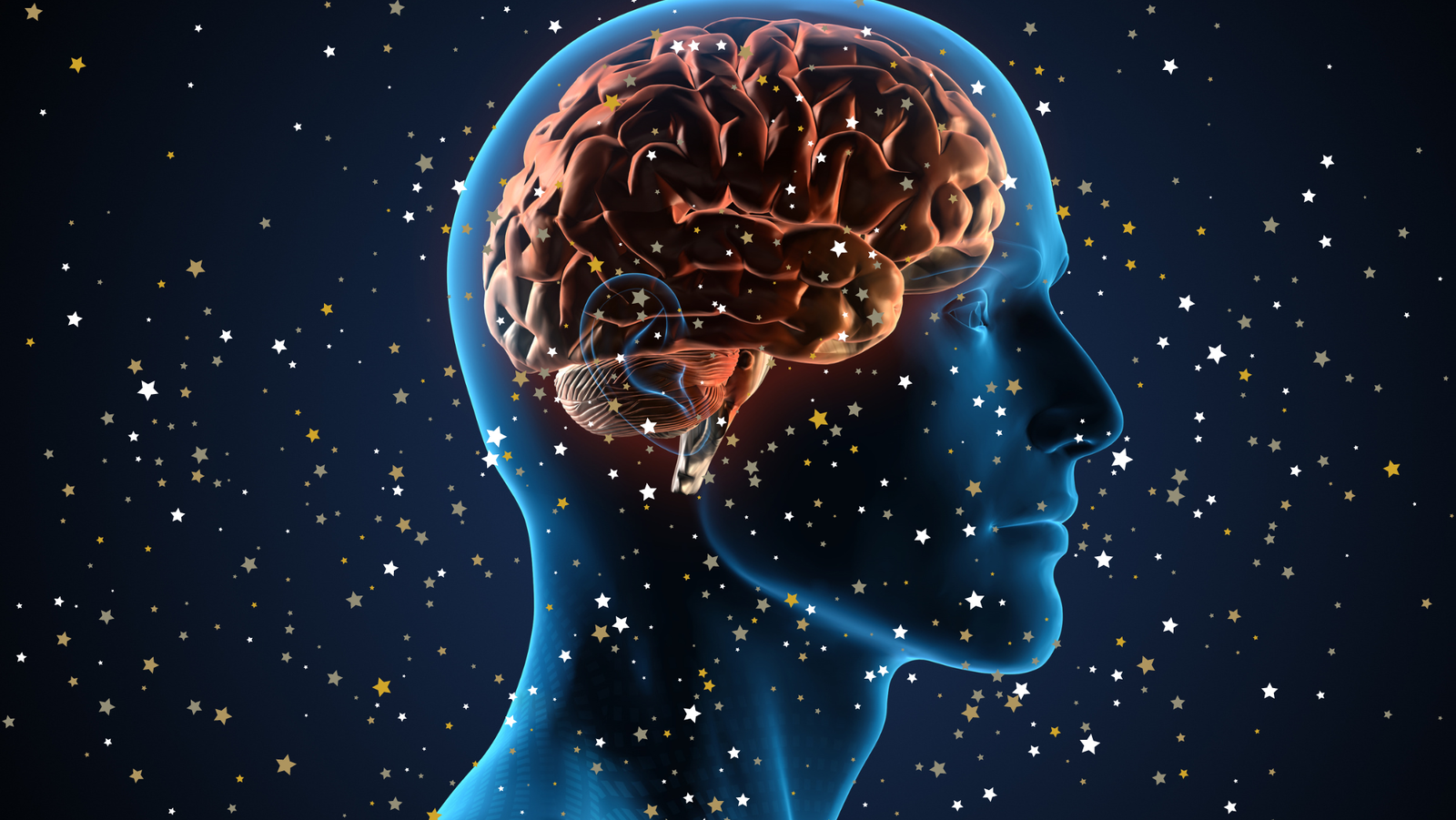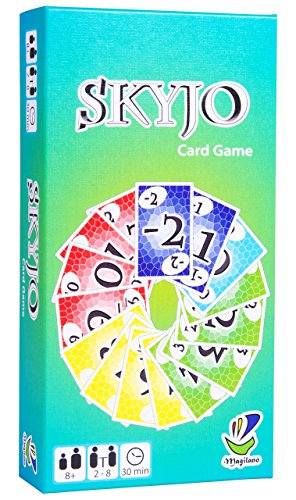In today’s fast-paced world, maintaining optimal brain health is crucial for people of all ages. Whether you’re a child just beginning to develop cognitive skills or an elderly individual aiming to preserve mental sharpness, incorporating brain exercises into your routine can significantly enhance cognitive function and overall wellness. In this blog, we’ll explore various brain exercises tailored for different age groups, highlighting their importance and benefits.
Stimulating Different Parts of the Brain
Understanding the diverse functions of different brain regions is crucial for tailoring effective brain exercises. Here’s a closer look at how to stimulate various parts of the brain through targeted activities:
Frontal Lobe: Located at the front of the brain, the frontal lobe is responsible for higher cognitive functions such as problem-solving, decision-making, and emotional regulation. To stimulate this region, engage in activities that require strategic thinking, planning, and decision-making. This could include solving puzzles, playing strategy-based board games like chess or Scrabble, or participating in activities that involve goal-setting and organization.
Hippocampus: Situated within the temporal lobe, the hippocampus plays a vital role in memory formation and spatial navigation. To keep the hippocampus active, engage in activities that challenge memory recall and spatial awareness. Memory exercises such as memorizing lists, recalling past events, or learning new information can help stimulate this region. Additionally, activities that involve spatial awareness, such as navigating a new environment or learning a new route, can also benefit the hippocampus.
Cerebellum: Positioned at the back of the brain, the cerebellum is primarily responsible for coordination, balance, and motor control. To stimulate the cerebellum, focus on activities that require coordination and physical movement. This could include activities like dancing, yoga, playing sports, or practicing fine motor skills such as drawing or playing a musical instrument. Engaging in activities that challenge balance and coordination can help maintain cerebellar function and promote overall brain health.
By incorporating a variety of activities that target different brain regions, individuals can ensure comprehensive brain stimulation and support cognitive function across various domains. Additionally, mixing up activities to engage multiple brain regions simultaneously can provide a holistic approach to brain health and maximize cognitive benefits. Remember to adapt activities based on personal interests and preferences to make brain exercises enjoyable and sustainable for long-term engagement.
[As an Amazon Associate, I earn from qualifying purchases at no additional cost to you.]
Why Brain Exercise Is Important for All Ages
Maintaining cognitive health is essential for individuals of all ages, from children to the elderly. Here’s a detailed exploration of why brain exercise is crucial for everyone:
Cognitive Development in Children: For children, engaging in brain exercises is vital as it promotes cognitive development during crucial developmental stages. These exercises help lay the foundation for essential skills such as problem-solving, critical thinking, and creativity. By challenging young minds through activities like puzzles, memory games, and creative play, children can enhance their cognitive abilities and improve academic performance.
Lifelong Learning and Adaptation: As individuals grow older, the brain’s ability to adapt and learn new information remains critical. Brain exercises facilitate lifelong learning by encouraging individuals to explore new skills, hobbies, and interests. This continuous mental stimulation not only keeps the brain active but also enhances cognitive flexibility and adaptability, allowing individuals to thrive in an ever-changing world.
Prevention of Cognitive Decline: Engaging in regular brain exercises can help prevent or delay cognitive decline associated with aging. Studies have shown that mentally stimulating activities, such as solving puzzles, learning new languages, or playing musical instruments, can help preserve cognitive function and reduce the risk of conditions like dementia and Alzheimer’s disease. By keeping the brain active and engaged, individuals can maintain mental sharpness and independence as they age.
Improved Quality of Life: A healthy brain contributes to overall well-being and quality of life. Brain exercises not only enhance cognitive function but also promote emotional well-being and social connectedness. Engaging in activities that challenge the mind fosters a sense of accomplishment and fulfillment, boosting self-esteem and confidence. Additionally, participating in social brain exercises, such as group discussions or team-based activities, promotes social interaction and strengthens interpersonal relationships, which are essential for mental and emotional health.
Enhanced Brain Resilience: Just as physical exercise strengthens the body, brain exercises build resilience and protect against cognitive decline. By regularly challenging the brain through diverse activities, individuals can build cognitive reserve, which serves as a buffer against age-related changes and neurological disorders. This enhanced brain resilience ensures that individuals can better cope with cognitive challenges and maintain optimal function throughout their lives.
In conclusion, brain exercise is vital for individuals of all ages as it promotes cognitive development, lifelong learning, and adaptation, while also preventing cognitive decline and enhancing overall quality of life. By incorporating brain exercises into daily routines, individuals can nurture a healthy brain and enjoy the numerous cognitive and emotional benefits that come with it. Remember, a stimulated mind is a resilient mind, capable of thriving at every stage of life.
Brain Exercise for Children and Teens
Children and teenagers undergo significant cognitive development during their formative years, making brain exercise crucial for their overall growth and academic success. Here’s a closer look at how tailored brain exercises benefit these age groups:
Cognitive Development: Childhood and adolescence are critical periods for brain development, characterized by rapid synaptic growth and neural pruning. Brain exercises during this time help shape cognitive functions such as memory, attention, problem-solving, and creativity. By engaging in stimulating activities like puzzles, memory games, storytelling, and creative arts and crafts, children and teens can strengthen neural connections and enhance cognitive abilities.
Academic Performance: Brain exercises play a pivotal role in academic success by improving cognitive skills essential for learning and retention. Activities that challenge critical thinking, such as debate clubs, strategic board games, and coding workshops, help children and teens develop analytical skills and logical reasoning abilities. Additionally, memory exercises and mnemonic techniques aid in retaining and recalling information, leading to improved performance in school and beyond.
Social and Emotional Development: Brain exercises for children and teens extend beyond cognitive skills to encompass social and emotional development. Group activities like team sports, group discussions, and collaborative projects foster communication skills, empathy, and teamwork. These experiences not only promote social integration but also enhance emotional intelligence, helping young individuals navigate interpersonal relationships and develop resilience in the face of challenges.
Healthy Habits: Encouraging brain exercises from a young age promotes the establishment of healthy habits that contribute to lifelong cognitive health. By integrating physical exercise and outdoor play into brain exercise routines, children and teens not only stimulate brain function but also support overall well-being. Regular physical activity improves blood flow to the brain, enhances mood, and reduces stress, all of which are beneficial for cognitive performance and mental health.
Preparation for Future Challenges: Engaging in diverse brain exercises equips children and teens with essential skills and competencies necessary for navigating future challenges. Whether it’s developing problem-solving skills through strategic games or fostering creativity through artistic endeavors, these experiences build a strong foundation for success in academics, careers, and personal endeavors. By nurturing a curious and adaptable mindset, young individuals are better prepared to thrive in an ever-changing world.
In summary, brain exercises tailored for children and teens are instrumental in promoting cognitive development, academic achievement, social-emotional growth, and overall well-being. By providing opportunities for stimulating activities and fostering a supportive environment, parents, educators, and caregivers play a vital role in nurturing young minds and setting them on the path to success. Remember, investing in brain health during childhood and adolescence yields lifelong benefits for cognitive resilience and fulfillment.
Why Brain Exercise Is Important for All Ages
Maintaining cognitive health is essential for individuals of all ages, from children to the elderly. Here’s a detailed exploration of why brain exercise is crucial for everyone:
Cognitive Development in Children: For children, engaging in brain exercises is vital as it promotes cognitive development during crucial developmental stages. These exercises help lay the foundation for essential skills such as problem-solving, critical thinking, and creativity. By challenging young minds through activities like puzzles, memory games, and creative play, children can enhance their cognitive abilities and improve academic performance.
Lifelong Learning and Adaptation: As individuals grow older, the brain’s ability to adapt and learn new information remains critical. Brain exercises facilitate lifelong learning by encouraging individuals to explore new skills, hobbies, and interests. This continuous mental stimulation not only keeps the brain active but also enhances cognitive flexibility and adaptability, allowing individuals to thrive in an ever-changing world.
Prevention of Cognitive Decline: Engaging in regular brain exercises can help prevent or delay cognitive decline associated with aging. Studies have shown that mentally stimulating activities, such as solving puzzles, learning new languages, or playing musical instruments, can help preserve cognitive function and reduce the risk of conditions like dementia and Alzheimer’s disease. By keeping the brain active and engaged, individuals can maintain mental sharpness and independence as they age.
Improved Quality of Life: A healthy brain contributes to overall well-being and quality of life. Brain exercises not only enhance cognitive function but also promote emotional well-being and social connectedness. Engaging in activities that challenge the mind fosters a sense of accomplishment and fulfillment, boosting self-esteem and confidence. Additionally, participating in social brain exercises, such as group discussions or team-based activities, promotes social interaction and strengthens interpersonal relationships, which are essential for mental and emotional health.
Enhanced Brain Resilience: Just as physical exercise strengthens the body, brain exercises build resilience and protect against cognitive decline. By regularly challenging the brain through diverse activities, individuals can build cognitive reserve, which serves as a buffer against age-related changes and neurological disorders. This enhanced brain resilience ensures that individuals can better cope with cognitive challenges and maintain optimal function throughout their lives.
In conclusion, brain exercise is vital for individuals of all ages as it promotes cognitive development, lifelong learning, and adaptation, while also preventing cognitive decline and enhancing overall quality of life. By incorporating brain exercises into daily routines, individuals can nurture a healthy brain and enjoy the numerous cognitive and emotional benefits that come with it. Remember, a stimulated mind is a resilient mind, capable of thriving at every stage of life.
How to Do Brain Exercises
Engaging in brain exercises is essential for maintaining cognitive health and promoting mental acuity. Here’s a comprehensive guide on how to incorporate effective brain exercises into your daily routine:
Diversify Activities: Variety is key when it comes to brain exercises. Incorporate a range of activities that target different cognitive functions, including memory, attention, problem-solving, and creativity. This could include puzzles, memory games, learning new skills or hobbies, meditation, and physical exercise.
Sudoku and Crossword Puzzles: Solve puzzles like Sudoku and crossword puzzles to challenge logical reasoning and problem-solving skills. These activities require you to think critically, analyze patterns, and make decisions, stimulating the brain and improving cognitive function.
Memory Games and Quizzes: Test and improve your memory with memory games and quizzes. This could involve memorizing lists, recalling past events, or playing memory matching games. Memory exercises strengthen neural pathways associated with memory retrieval, enhancing overall cognitive function.
Learn New Skills or Hobbies: Engage in lifelong learning by learning new skills or hobbies. Whether it’s playing a musical instrument, learning a new language, or mastering a new craft, acquiring new knowledge stimulates the brain and fosters cognitive growth.
Meditation and Mindfulness: Practice meditation and mindfulness techniques to promote mental clarity and focus. These practices encourage relaxation, reduce stress, and enhance attentional control, leading to improved cognitive performance.
Physical Exercise and Aerobic Activities: Don’t forget to exercise your body for a healthy brain. Regular physical activity improves blood flow to the brain, stimulates the release of neurotransmitters associated with mood and cognition, and promotes neuroplasticity. Aim for at least 30 minutes of aerobic exercise most days of the week.
Challenge Yourself: Push yourself out of your comfort zone by taking on challenging tasks and activities. Whether it’s solving a difficult puzzle, tackling a complex problem, or learning a new skill, challenging activities force your brain to adapt and grow, strengthening cognitive abilities in the process.
Set Goals and Track Progress: Establish goals for your brain exercises and track your progress over time. This could involve increasing the difficulty of puzzles, learning new vocabulary words, or improving your memory recall speed. Setting goals provides motivation and ensures continued growth and improvement.
Stay Consistent: Consistency is key when it comes to brain exercises. Incorporate these activities into your daily or weekly routine and make them a habit. Just like physical exercise, regular mental workouts are necessary to see long-term benefits and maintain cognitive health.
Stay Engaged and Enjoy the Process: Lastly, remember to have fun with your brain exercises. Choose activities that you enjoy and that challenge you mentally. Staying engaged and motivated is essential for long-term adherence to brain exercise routines.
Incorporating these brain exercises into your daily routine will help keep your mind sharp, improve cognitive function, and promote overall brain health. Remember, just like any muscle, the brain requires regular exercise to stay strong and resilient. So, challenge yourself, stay consistent, and enjoy the process of stimulating your mind.
Best Exercises for Memory
Memory plays a vital role in our daily lives, from recalling important information to navigating familiar environments. Strengthening memory through targeted exercises can enhance cognitive function and improve overall brain health. Here are some effective exercises to boost memory:
Mnemonic Techniques: Mnemonics are memory aids that help you remember information more easily by associating it with familiar cues or images. Examples include acronyms (e.g., “HOMES” to remember the Great Lakes: Huron, Ontario, Michigan, Erie, Superior), visual imagery (creating vivid mental images to represent information), and the method of loci (associating items to be remembered with specific locations along a familiar route or in a familiar place).
Memory Games: Play memory games and exercises designed to challenge and improve your recall abilities. Classic memory games like Concentration (matching pairs of cards) and Simon (repeating sequences of colors or sounds) are excellent options. Additionally, online platforms offer a wide range of memory games and apps specifically designed to train and enhance memory skills.
Chunking: Break down large amounts of information into smaller, manageable chunks to aid memory retention. Instead of trying to remember a long string of digits or words, organize them into meaningful groups or patterns. For example, remember a phone number by grouping digits into familiar sequences (e.g., area code, prefix, suffix).
Repetition and Spaced Retrieval: Practice retrieval of information through repeated exposure and spaced intervals. Reviewing information multiple times over an extended period reinforces memory consolidation and improves retention. Spaced retrieval involves gradually increasing the time intervals between each recall attempt, which strengthens long-term memory storage.
Mindful Observation: Practice mindful observation to enhance attention and encoding of sensory details. Engage your senses by carefully observing your surroundings, paying attention to colors, shapes, textures, and sounds. This exercise not only improves memory but also cultivates mindfulness and present-moment awareness.
Narrative Storytelling: Construct narratives or stories around information you want to remember. Creating a cohesive storyline helps organize and contextualize information, making it easier to recall. This technique is particularly effective for remembering sequences of events or lists of items.
Physical Exercise: Regular physical exercise has been shown to enhance memory and cognitive function. Aerobic exercise increases blood flow to the brain, stimulates the release of neurotransmitters associated with memory and learning, and promotes neuroplasticity. Aim for a combination of cardiovascular exercises, strength training, and flexibility exercises for optimal brain health.
Sleep: Prioritize quality sleep to support memory consolidation and retention. During sleep, the brain processes and consolidates newly acquired information, strengthening memory traces. Aim for 7-9 hours of uninterrupted sleep each night to maximize cognitive function and memory retention.
Nutrition and Hydration: Maintain a balanced diet rich in brain-boosting nutrients such as omega-3 fatty acids, antioxidants, vitamins, and minerals. Stay hydrated throughout the day, as dehydration can impair cognitive function and memory. Foods rich in antioxidants, such as berries, leafy greens, and nuts, support brain health and memory.
Mindfulness Meditation: Incorporate mindfulness meditation into your daily routine to reduce stress, enhance focus, and improve memory. Mindfulness practices cultivate present-moment awareness and attention control, which are essential for encoding and retrieving memories effectively.
Incorporating these memory exercises into your routine can help sharpen your recall abilities, improve cognitive function, and support overall brain health. Remember to stay consistent, practice regularly, and tailor exercises to suit your individual preferences and needs. By nurturing your memory through targeted exercises and healthy lifestyle habits, you can enjoy better cognitive function and a sharper mind at any age.
IQ Exercises and Testing
IQ, or Intelligence Quotient, is a measure of an individual’s cognitive abilities relative to others in their age group. While IQ tests provide a standardized measure of intelligence, it’s essential to understand that they assess only certain aspects of cognitive function and may not capture the full spectrum of human intelligence. Here’s a closer look at IQ exercises and testing:
Understanding IQ Testing: IQ tests typically consist of a series of standardized questions designed to assess various cognitive abilities, including logical reasoning, problem-solving skills, verbal comprehension, and spatial awareness. These tests are administered under controlled conditions by trained professionals and provide a numerical score that represents an individual’s intelligence quotient.
IQ Formulas: While there are various formulas used to calculate IQ, they typically involve comparing an individual’s performance on an IQ test to the performance of a standardized population. The most common IQ formula assigns a score of 100 as the average IQ for the general population, with scores above or below 100 indicating above-average or below-average intelligence, respectively.
IQ Exercises for Children: IQ exercises for children aim to develop their cognitive abilities and enhance their problem-solving skills. These exercises often involve pattern recognition, sequencing games, math puzzles, and logic puzzles. Encouraging children to engage in activities that challenge their thinking and reasoning abilities can help stimulate cognitive development and improve IQ scores.
Online IQ Tests: While professional IQ tests administered by psychologists provide the most accurate assessment of IQ, there are some online resources and apps that offer IQ tests for individuals to take at home. These online tests should be approached with caution, as they may not provide a precise measure of intelligence and may vary in reliability and validity.
IQ Testing Limitations: It’s important to recognize that IQ tests have limitations and may not fully capture an individual’s intelligence or potential. Factors such as cultural background, educational opportunities, and personal experiences can influence test performance. Additionally, intelligence is a complex and multifaceted construct that cannot be fully captured by a single numerical score.
Focus on Development: Rather than placing undue emphasis on IQ scores, it’s more meaningful to focus on individual development and growth. Encouraging children and individuals of all ages to engage in lifelong learning, explore their interests, and develop their unique talents and abilities can lead to greater fulfillment and success.
Encouraging a Growth Mindset: Emphasize the importance of effort, perseverance, and resilience over fixed notions of intelligence. Encourage a growth mindset, where individuals believe that their abilities can be developed through dedication and hard work. This mindset fosters a sense of empowerment and promotes a lifelong commitment to learning and self-improvement.
In summary, while IQ exercises and testing can provide insights into cognitive abilities, it’s essential to approach them with a critical mindset and recognize their limitations. Instead of focusing solely on IQ scores, prioritize individual development, growth, and the cultivation of a growth mindset. By fostering a love of learning and encouraging intellectual curiosity, individuals can reach their full potential and lead fulfilling lives.
In conclusion, incorporating brain exercises into daily routines is essential for both kids and the elderly to maintain cognitive health and overall well-being. By engaging in activities that challenge the mind and stimulate various cognitive functions, individuals can enhance memory, problem-solving skills, and overall brain function throughout their lives. Remember, a healthy brain is the key to a fulfilling and active lifestyle at any age.




















